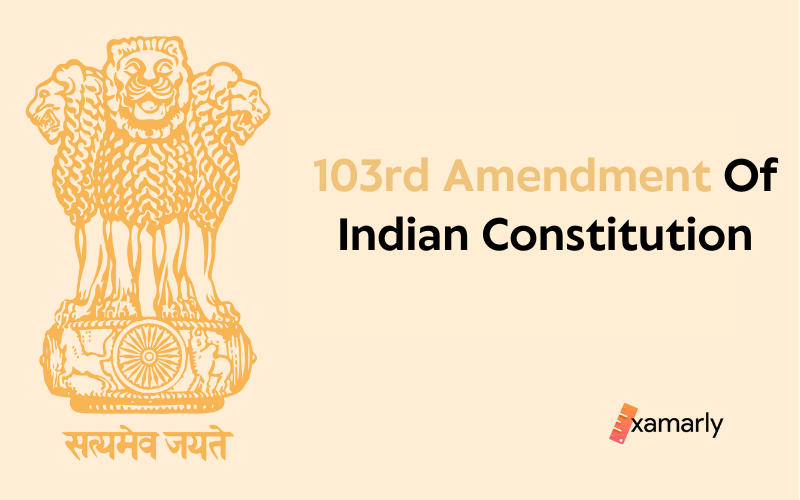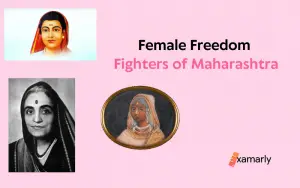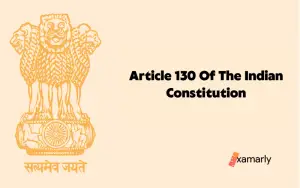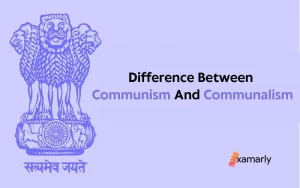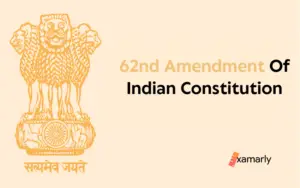The 103rd Amendment of Indian Constitution is officially known as the Constitution (103rd Amendment) Act, 2019. It was a notable step toward empowering the sections of society that were underprivileged financially. These are known as the Economically Weaker Sections (EWS). 10% of seats were reserved in Central Government educational institutions and for Central Government jobs. This also applied to private educational institutions. However, minority educational institutions were excluded from this.
Background
As soon as the bill for the 103rd Amendment Act was passed by the Rajya Sabha, a Public Interest Litigation (PIL) was filed in the Supreme Court. This PIL challenged the bill and requested the intervention of the Supreme Court. It wanted the implementation of the 10% EWS quota in the states of Tamil Nadu and Karnataka. However, it did not want to hamper the existing reservation framework which was meant for the Scheduled Castes (SCs), Scheduled Tribes (STs), Backward Classes (BCs), and Most Backward Classes (MBCs). Neither of the two states did adopt the amendment. Moreover, SCs, STs, BCs, and MBCs have a reserved quota of 69% in jobs and schools in Tamil Nadu. For Karnataka, this quota is 70%. The Centre conveyed to the Supreme Court its non-involvement in the reservation policy of a State. The State Government is responsible for the implementation of reservations as per articles 15(6) and 16(6).
Need For The 103rd Amendment Of Indian Constitution
The constitution protects minorities and communities that are lagging behind. A large portion of the population of our country is economically weaker. The existing scheme of reservation was not covering such sections of society. They were being deprived of higher education as well as in the job sector due to a lack of facilities. As mandated in the Constitution, it was necessary to make facilities and opportunities available for the EWS.
This Amendment would be beneficial for upper caste financially insecure students. It would also help poor people belonging to upper castes to avail same reservations as the OBCs. Most importantly it would help to eradicate the stigma around reservations. Therefore, the need for an Amendment to the Constitution was felt.
Salient Features And Facts
Under the 103rd Amendment Act of the Indian Constitution, a 10% quota was reserved in educational institutions and jobs of the Central Government. These reservations were not made in the State Government educational institutions and State Government jobs. Although, some states did choose to implement the 10% EWS quota. This was done to create a balance across diverse economic groups within our country.
These reservations are also meant for poor people belonging to the unreserved category. The bill was passed keeping the existing reservations intact. The main objective behind this Amendment Act was to provide facilities for studies and jobs to financially unstable sections of society. It also aimed to make article 46 of the Indian Constitution compulsory. According to this article, the Indian Government shall protect the educational and economic interests of the weaker sections of the society along with the socially disadvantaged sections.
Only certain sections of people can make use of reservations through the EWS quota. Their annual income must not exceed 8 lakhs per annum. The person should have ownership of a minimum of 5 acres of farmland. People in possession of a house but less than 1000 square feet in a town can also be included in the EWS category.
A Challenge To The Constitutional Validity
The primary legal argument against the legitimacy of the amendment was the basic structural argument. The essence of the constitution is based on several values, including democracy, federalism, equality, secularism, and others. These are predetermined by the basic structural theory, and they cannot be changed because doing so would undermine the foundation of the Constitution as a whole. The Supreme Court ruled that the Parliament has the authority to alter the Constitution. However, this authority is not unrestricted under article 368. The modification may be rejected if it harms the basic structure.
The 103rd Amendment Act of the Indian Constitution violates the fundamental structure of the Constitution. The amendment infringes on the equality code by granting a 10% benefit to a small, privileged class. It allows the State to make special provisions based on financial instability, including reservations. It also allows the State to make provisions for admission to private unaided institutions. The Amendment excludes SCs, STs, OBCs, and SEBCs from the ambit of EWS reservations. In effect, the 103rd Amendment threatens to destroy the identity of the Constitution and the fundamental values that make it so valuable.
Violation Of The 50% Reservation Limit
Under this Amendment Act, articles 15(6) and 16(6) were modified. It was argued that the Amendment breached the 50% ceiling on reservations. Article 16(1) ensures equality in public employment. Article 16(4) is an exception to the former article. A State has the authority to make reservations for backward classes. However, as per a judgment by the Supreme Court, the maximum reservation that is allowed under any quota is 50% only. SCs, STs, and OBCs come under the ambit of backward classes. Due to the 103rd Amendment Act, this limit exceeded the set limit of 50% reservation.
Date Enacted
The bill for the enactment of the 103rd Amendment of the Indian Constitution was approved by the President on January 12, 2019. The amendment act was enforced on January 14, 2019.
Statement Of Objects and Reasons
The Statement of Objects and Reasons for the enactment of the 103rd Amendment of the Constitution of India has been explained below.
A new clause shall be added following clause (5) in article 15 of the Constitution. It is as follows:-
(6) The State is not prohibited from taking any action by this article, or sub-clause (g) of clause (1) of article 19 or paragraph (2) of article 29.
(a) The State shall make special provisions for the progress of any economically weaker sections of society. Classes specified in clauses (4) and (5) are exceptions; and
(b) The State shall make special provisions for the progress of any economically weaker sections of society. Classes specified in clauses (4) and (5) are exceptions. Such special provisions are related to admission to educational institutions. This also includes aided as well as unaided private educational institutions, by the State. Clause (1) of article 30 refers to minority educational institutions that are an exception. The seats from such institutions, in case of reservation, would be added to the existing reserved seats. This is subject to a limit of a maximum of 10% of the total seats per category.
Explanation. – From time to time the State will notify “economically weaker sections”. This will be based on family income and other factors of deprivation of the family . This applies to this article and article 16.
A new clause shall be added following clause (5) in article 16 of the Constitution. It is as follows:-
(6) The State shall not be prevented from providing for the reservation of posts or appointments in the best interest of any economically weaker sections of people, by anything in this article. Classes mentioned in clause (4) are an exception to this. This is in addition to the current reservation and is subject to a maximum of 10% of the total posts per category.
Prominent People Involved
The 103rd Amendment of Indian Constitution was proposed in the form of a bill in the Lok Sabha. This bill was the Constitution (124th Amendment) Bill, 2019. It was introduced on January 8, 2019. Thawar Chand Gehlot was the person to do so. He was serving as the Minister of Social Justice and Empowerment.
The bill was passed by the Lok Sabha and the Rajya Sabha, respectively. It was then approved by then President Ram Nath Kovind. The assent was given on January 12, 2019. The 103rd Amendment of Indian Constitution was then enforced on January 14, 2019.
See Also – 61st Amendment Of Indian Constitution
Important Provisions
The amendment has several important provisions that are intended to help the economically weaker sections of society. For example, it makes it easier for people from lower-income families to obtain jobs and advance their lives. There is also an exception for minority educational institutions.
It modified Article 15(6) to render power to the government to take suitable measures for the upliftment of the EWS.
It also modified Article 16(6) to make available 10% reservations for EWS in all posts. The existing reservation quota for SCs, STs, and OBCs is 50%. Due to 103rd Amendment of Indian constitution, this ratio has been raised to about 60%.
Under this Amendment Act, there is a provision for more seats in institutions of higher education such as IITs, NITs, IIMs, and medical colleges for the EWS.
Reservation under this Amendment Act is purely based on economic status irrespective of caste or religion.
Related – EWS Quota
Summing Up
Sections of society such as the SCs, STs, and OBCs have been allowed reservations based on their social backwardness. The 103rd Amendment of Indian constitution allowed reservation for the economically underprivileged in the unreserved category based on family income criteria. Some poor classes of citizens were left out of the 50% reservation policy meant for SCs, STs, and the Socially and Educationally Backward Classes (SEBC). It also aimed to help them. The amendment has been challenged on various grounds. Some argue that it is unconstitutional discrimination, while others argue that it is justified under social justice or equality.
FAQ’s
Q1. What was the purpose behind the 103rd Amendment of Indian Constitution?
The 103rd Amendment Act of the Indian Constitution was a step taken for the upliftment of Economically Weaker Sections (EWS) of society. The EWS is to be granted a 10% quota. These reservations are in educational institutions as well as in government jobs.
Q2. Which articles were introduced into the Constitution of India for the 103rd Amendment of Indian constitution to be enacted?
For the enforcement of the 103rd Amendment Act, articles 15(6) and 16(6) were added to the Indian Constitution. Due to this, 10% reservation was made available for the economically weaker sections of the Indian Society.


